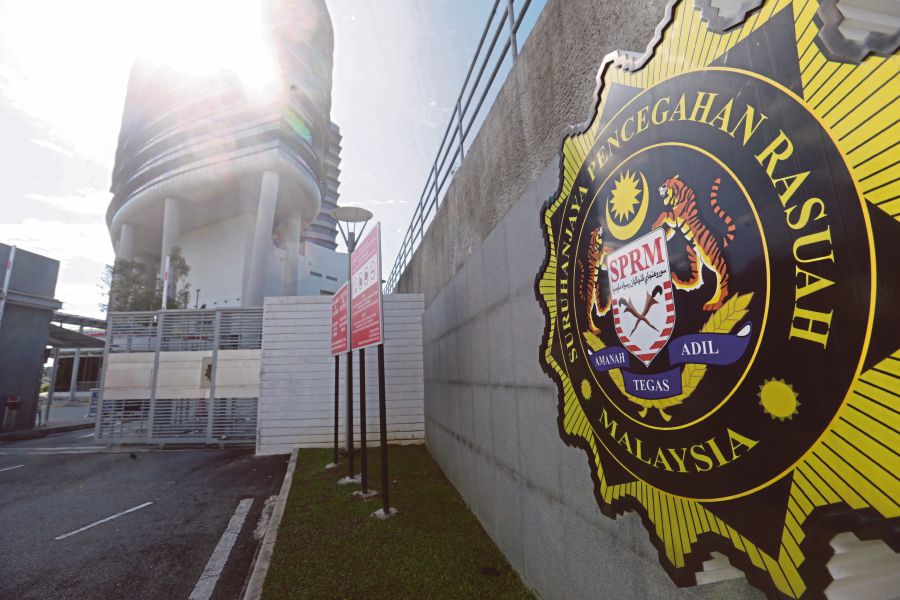IT is commendable that various initiatives have been undertaken by the government to improve Malaysia's score and ranking on the global Corruption Perceptions Index (CPI) by Berlin-based Transparency International.
The CPI is a widely recognised measure of corruption perceptions and related issues within the public sector of countries.
When the CPI was introduced in 1995, Malaysia was initially ranked 23rd among 41 countries.
Over the years, as more countries were assessed in the index, Malaysia's performance has stabilised with scores consistently ranging between 45 and 50.
In 2023, Malaysia achieved a CPI score of 50 and ranked 57th among 180 countries — its best score since 2021.
Many are perhaps unaware that the CPI neither directly measures the occurrence of corruption nor focuses solely on corruption.
The methodology used to rank a country in the global index is far broader, encompassing factors such as governance, transparency, freedom of speech, access to public information, economic factors and mechanisms of government accountability.
The CPI relies on nine key data sources to calculate a country's score: the World Bank's Worldwide Governance Indicators, the Economist Intelligence Unit Country Risk Service, the World Economic Forum Executive Opinion Survey, Global Insight Business Conditions and Risk Indicators, Bertelsmann Stiftung Transformation Index, African Development Bank's Governance Ratings, IMD World Competitiveness Yearbook, PERC Asia Risk Guide, and the Varieties of Democracy Project.
These sources provide expert opinions on public sector corruption, which are then aggregated to form each country's CPI score.
It is essential to note that the CPI focuses exclusively on the public sector. Additionally, the index measures perceptions of corruption rather than actual occurrences.
These perceptions are drawn from various sources, including opinion surveys, assessment reports from international organisations, risk analyses, media reports, and insights from experts and non-governmental groups.
The CPI takes into account 11 aspects of governance, with corruption being just one of them.
These include the diversion of public funds, accountability of officials who exploit public office for personal gain, the government's capacity to control corruption and enforce integrity mechanisms, excessive bureaucracy that fosters corruption opportunities, nepotistic appointments over merit-based ones in public service, prosecution of corrupt officials, the presence of adequate laws on financial disclosure and conflict-of-interest prevention for public officials, legal protections for whistleblowers, journalists and investigators, and civil society's access to information on public affairs.
When examining these aspects, it becomes evident that the CPI is not merely a measure of corruption but also a broader evaluation of governance and institutional integrity.
Malaysia's legal framework on anti-corruption is notably comprehensive, covering misconduct in public administration as well as in non-governmental and corporate sectors.
However, it should be clarified that previous strategies to improve Malaysia's CPI score were misguided in placing the burden almost entirely on the Malaysian Anti-Corruption Commission (MACC). While the MACC has performed well within its mandate, the CPI's extensive scope means that no single agency can significantly influence the index.
To achieve meaningful progress, other government ministries and agencies must also take ownership of their roles in enhancing governance and transparency.
A coordinated, all-of-government approach is essential to addressing the broad range of issues assessed by the CPI.
With sustained commitment and collaboration among all stakeholders, Malaysia can achieve significant improvements in its CPI ranking.
The Madani government's aspiration to place Malaysia among the top 25 countries on the CPI within the next decade is an ambitious but attainable goal.
This journey requires the collective will of all parties — government institutions, civil society and the public alike.
By fostering a culture of accountability, transparency, and good governance, Malaysia can build a more resilient and trusted public sector, one that reflects the nation's aspirations for integrity and progress.
*The writer is an associate professor at the Centre for Core Studies, Islamic Science University of Malaysia
*The views expressed in this article are the author's own and do not necessarily reflect those of the New Straits Times










